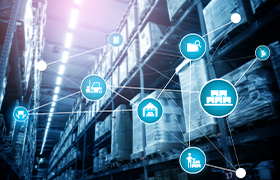
Li-Ion Batteries - Usage, Challenges and Alternatives

Lithium Ion (Li-ion) batteries have been the fastest growing and the most promising technology of its kinds which has led to its widespread adoption across industries like Consumer Electronics, Automotive Electrification, and Utility Grid Energy Storage etc. owing to its lifespan, high discharge rate, and ability to perform effectively in a number of different energy storage applications. Despite its advantages, Li-ion batteries are also subjected to some limitations viz. requirement of protection circuit to maintain voltage and current within safe levels, ageing even when not in use, transportation restrictions, high manufacturing costs etc. Apart from the technical drawbacks, there is also a shortage of lithium (a major component of Li-ion batteries) with rising demand. This paper will discuss the challenges faced by Li-ion batteries industry and suggest alternative measures to overcome the same. Challenges in the Sourcing of Li-ion Batteries: Lithium, a soft highly reactive and flammable silver white metal belongs to the alkali metal group of chemical elements and is an important component of Li-ion batteries. Li-ion batteries are widely used in Grid and Renewable Energy Storage, Automotive, Consumer and Industrial applications. The Grid Energy Storage and Automotive market is expected to lead the end use industries of Li-ion batteries with a market contribution of 37.6% and 30% respectively. Author: Saptaparni Kundu
Related Insights:
View All
Get more stories like this
Subscirbe for more news,updates and insights from Beroe






